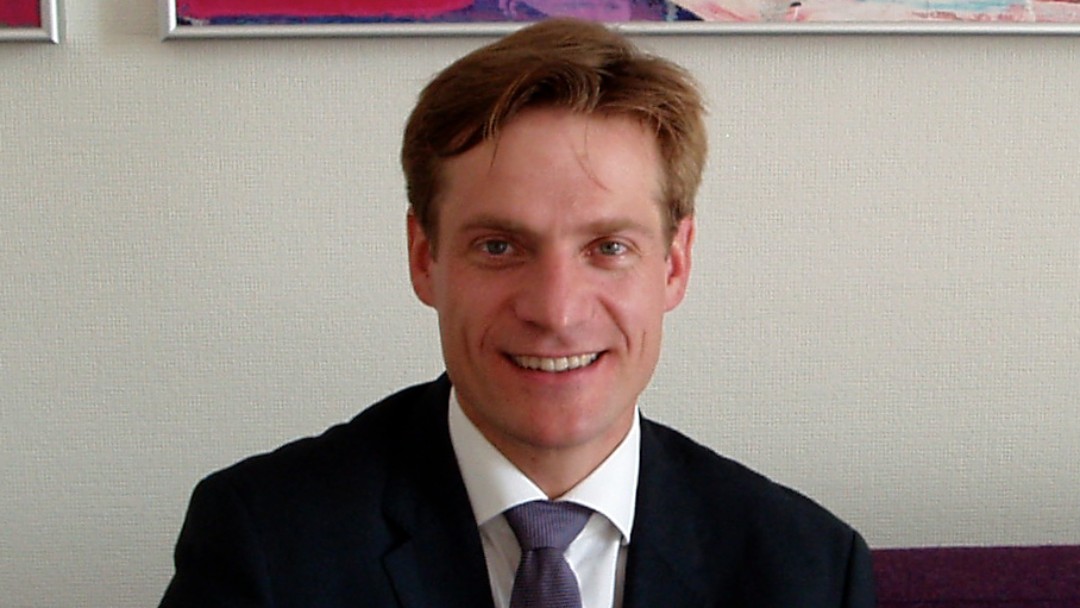News from 2015-01-14 / KfW Development Bank
Wave of social emancipation
Talk with Gunnar Wälzholz, Director KfW Office Kiev
Mr Wälzholz, you were travelling in eastern Ukraine a few days ago. What's your impression?
Gunnar Wälzholz: There are three distinct areas in the Donbass region in eastern Ukraine. One part is controlled by separatists, another strip was liberated by government troops. Both places have been heavily damaged and thousands of people have fled. The third part has never been occupied and makes up two-thirds of Donbass, a fact that has gotten lost so far in the news. There also hasn't been any fighting in the neighbouring districts in eastern Ukraine. Some cities, like the industrial city of Dnipropetrovsk, seem relatively prosperous. Yet they are suffering from the economic and humanitarian consequences of the conflict.
How is the situation impacting general economic conditions? Are foreign private investors withdrawing from Ukraine?
Wälzholz: Indeed, the overall framework for investments is not particularly good. The global financial crisis of 2008/2009 already seriously affected Ukraine. Ukraine fell into a deep recession again in 2014. Foreign direct investments dropped by 40 % from the previous year and industrial production shrank by 20 %. The value of the national currency fell steeply and the currency reserves dwindled to an alarming level. However, growth potential does exist, for example in agriculture or the IT sector. The people are well-educated. In the medium term, Ukraine will get back on its feet as long as the much needed structural change is carried out. Despite the conflict in eastern Ukraine, the conditions to achieve this goal are good. The EU Association Agreement and the elimination of customs duties for exports to the European Union are providing urgently needed impetus for modernisation. Significant increases in Ukrainian exports to the EU were already reported last year.
What role is the Maidan still playing? Is there still any evidence of upheaval?
Wälzholz: The Maidan was primarily a protest against stagnation, corruption and nepotism. The wave of social emancipation can also be felt beyond Kiev and is particularly strong in Dnipropetrovsk. People are hopeful despite all the everyday difficulties they face. They have seen that they can bring about change. It remains to be seen to what extent this mood will persist if the economic and social situation deteriorates further. The desire for extensive change in broad sections of the population is extremely important for further development.
What is KfW's current mission in Ukraine? Did you have to discontinue projects because of the war?
Wälzholz: The German Federal Government has pledged credit guarantees totalling EUR 500 million to Ukraine. This "guarantee framework" aims, among other things, to help rebuild the destroyed areas and modernise the ailing infrastructure in eastern Ukraine. Budget funds are also earmarked for the population affected by the conflict, for example, to renovate housing, schools and health units. We will also continue upgrading the economic and social infrastructure in other parts of the country. At the same time, we did have to discontinue several projects as a result of the conflict, for example, a water supply project in Donetsk that was still in the preparatory stages. On behalf of the German Federal Government, KfW is financing the rehabilitation of the power transmission system in eastern Ukraine, but several of the substations that need to be rehabilitated are now situated in the separatist region. We had to quickly complete a project to improve the social infrastructure at the municipal level in the Crimea – luckily we successfully finished ongoing construction projects.
How do you find cooperation with the new government? Will they be able to gain control of the situation?
Wälzholz: My experience of collaboration with our partner ministries is that they are much more open than before. The reform-oriented government is clearly aligned with Europe and is aware that "business as usual" is simply not an option. It remains to be seen to what extent it will be able to eliminate bureaucracy and corruption, create fair conditions for competition and maintain its solvency. There is an enormous need for modernisation. Among other things, urgent improvements to general conditions for businesses must be implemented ‒ they need streamlined approval processes and access to long-term financing. To improve this situation, we are providing Ukrainian banks with credit lines for small and medium-sized enterprises. The Ukrainian economy is also extremely energy-intensive. The energy intensity is four times as high as the EU average and there is a pressing need for this to be reduced. Consequently, we want to use part of the pledged funds for this in consultation with the German Federal Government and our Ukrainian partners. This will not only save a lot of money, it will reduce Ukraine's dependency on energy imports.
The interview was conducted by Alia Begisheva.


Share page
To share the content of this page with your network, click on one of the icons below.
Note on data protection: When you share content, your personal data is transferred to the selected network.
Data protection
Alternatively, you can also copy the short link: https://www.kfw-entwicklungsbank.de/s/enzBWrMC.-cA
Copy link Link copied